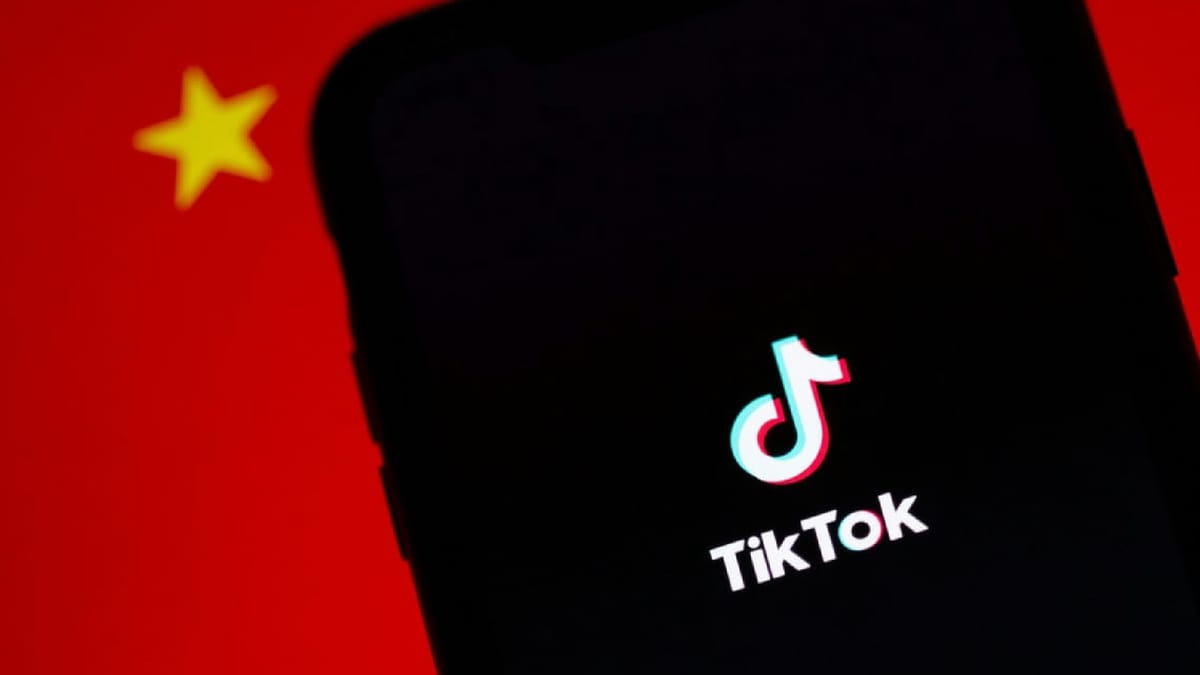Digital fentanyl

Recently: Why are American universities letting foreign governments bully their students? Sarah McLaughlin on the business model behind the pressure.
Today: Can you train a social-media algorithm, or does it train you? Occasional TikTok users doubled their watch time in five months without realizing it, with brain scans showing the app activating reward systems just like an addictive drug.
For members: Fifty comedians playing in Saudi Arabia, millions of dollars, and one head-scratcher: Why are they doing this? John Jamesen Gould on the Riyadh Comedy Festival.
& New music from Hannah Frances ...
Developments
- Fentanyl’s corporate suppliers. The U.S. Treasury Department sanctioned 12 Mexican companies and eight people on Monday for supplying precursor chemicals to the Sinaloa cartel’s Chapitos faction, which produces fentanyl trafficked into the United States. The network—spanning pharmaceutical, laboratory, chemical, cleaning, and real estate businesses—evaded earlier sanctions by operating through front companies, Treasury officials say. The cartel is among several Latin American criminal groups the American administration has designated as foreign terrorist organizations.
- Twenty years, one conviction. The International Criminal Court convicted Ali Muhammad Ali Abd-Al-Rahman, known as Ali Kushayb, on Monday of 27 counts of war crimes and crimes against humanity for attacks in Sudan’s Darfur region between 2003 and 2004. The verdict—the ICC’s first for Darfur atrocities and first conviction for gender-based persecution—found the Janjaweed militia commander personally involved in mass killings, rapes, and torture. The conviction arrives as similar violence resurfaces in Darfur amid Sudan’s current civil war, with human rights groups accusing the Rapid Support Forces—a paramilitary group that grew out of the Janjaweed militias—of continuing the pattern.
- Japanese nationalism breaks a glass ceiling. Sanae Takaichi won leadership of Japan’s Liberal Democratic Party on Saturday, positioning her to become the country’s first woman prime minister when parliament votes in mid-October. The 64-year-old hardline conservative—a protégé of assassinated former Prime Minister Shinzo Abe and regular visitor to the controversial Yasukuni war shrine—defeated the more moderate Shinjiro Koizumi in a runoff. Takaichi’s nationalist positions on China and historical issues have already drawn concern from regional neighbors, while her record on women’s rights suggests the milestone may mean less for Japanese women than the historic label implies.
- The back-pay gambit. The U.S. administration’s budget office claimed in a draft memo that federal workers furloughed in the current government shutdown are not automatically entitled to back pay after the shutdown ends, contradicting a 2019 law and previous government guidance. The memo—from Office of Management and Budget general counsel Mark Paoletta—argues Congress must specifically authorize payments when appropriations resume. About 750,000 employees have been furloughed during the week-long closure, with another 700,000 working without pay. Administration officials hope the reinterpretation will maximize Republican leverage in negotiations with Democrats over healthcare subsidies.

- Algorithmic appetite. The Washington Post tracked 1,100 TikTok users for five months and found the platform’s algorithm systematically trains casual users into compulsive behavior—occasional users doubled their daily watch time, opened the app more frequently, and swiped faster through videos. Brain imaging research shows personalized TikTok videos activate reward systems similar to addictive substances, while the platform’s design makes it nearly impossible to feel satisfied. The investigation documents how what users perceive as control—swiping to the next video—actually deepens the habit loop, showing the mechanics that make sense of comparisons between chronic platform use and substance addiction.
Digital fentanyl
The Washington Post obtained TikTok watch histories from more than 1,100 users and tracked their behavior over five months last year. What the data revealed wasn’t just heavy usage—it was the systematic creation of compulsive behavior. Occasional users who spent 32 minutes daily on TikTok in early April were watching 71 minutes by September, more than doubling their time without quite realizing it. They opened the app more frequently. They swiped faster. The power users—already spending over four hours daily—kept scrolling at similar levels, suggesting a threshold where people swipe simply because they can’t think of anything else to do.
TikTok’s design makes the compulsion feel like choice. Users swipe to control what they see, believing they’re training their algorithm. But the data suggests the opposite: the algorithm is training them. Brain imaging research shows personalized TikTok videos activate the same reward systems as money, food, and addictive substances—more strongly than non-personalized content. The mechanism isn’t just effective for TikTok. It’s foundational to the contemporary digital economy, where platforms profit not by satisfying users but by intensifying craving. In 2023, the Republican congressman Mike Gallagher—then the incoming chair of the House Committee on the Chinese Communist Party—called TikTok “digital fentanyl.”
It’s a comparison that struck more than a few people at the time as hyperbolic. But the Post’s investigation confirms how habit formation is designed into the platform itself, triggering brain chemistry that mimics substance addiction. So the question now isn’t whether the app creates compulsive behavior. The data settles that. The question is what it means that a dominant model of today’s digital economy depends on it.

Hungry for an alternative to dystopian anger? Join a gathering of code breakers, hackers, and puzzle solvers. You’ll leave optimistic—we promise.

From the weekend despatch
The Riyadh job
Fifty comedians playing in Saudi Arabia, millions of dollars, and one head-scratcher: Why are they doing this?
On Friday, September 27, on the stage at Boulevard City—a purpose-built venue in Riyadh, Saudi Arabia—the comedy phenomenon Dave Chappelle joked it was “easier to talk” there than in the United States. The crowd cracked up. Chappelle was headlining the opening weekend of the Riyadh Comedy Festival, a two-week event running through October 9 that organizers billed as “the world’s largest comedy festival.” The lineup is all-star: Kevin Hart, Louis C.K., Bill Burr, Jim Gaffigan, Pete Davidson, Aziz Ansari, Chris Tucker. About 50 comedians in total are playing, a lot of them among the most recognizable names in American stand-up.
Turki Al-Sheikh, the chairman of Saudi Arabia’s General Entertainment Authority—yes—announced the festival in July. It’s part of Crown Prince Mohammed bin Salman’s Vision 2030 initiative—an ambitious program to position Saudi as an international destination for culture, sports, and entertainment.
Atsuko Okatsuka, who declined an invitation to perform, posted excerpts from the contract she’d been sent: no material that violated Saudi censorship rules, no jokes about the royal family, no jokes about religion. Bill Burr later claimed on his Monday Morning Podcast that organizers had “negotiated it all the way down to just a couple things” after comedians balked at the initial restrictions. He called the experience “one of the top three” he’d ever had. “The royals loved the show,” Burr said. “They got a Chili’s over there. They’re just like us.”
Some got further along than Okatsuka without going all the way. Saudi authorities removed Tim Dillon from the lineup after he made jokes on his podcast about slavery in Saudi Arabia—though not before he’d mentioned he was being paid $375,000, and that other performers had been offered as much as $1.6 million. Marc Maron started mocking the festival in his own show: “I mean, how do you even promote that? ‘From the folks that brought you 9/11. Two weeks of laughter in the desert, don’t miss it.’”
Then on Monday, September 30, David Cross posted an open letter. Cross hadn’t been offered the gig, he noted, “but it should go without saying that there’s not enough money for me to help these depraved, awful people put a ‘fun face’ on their crimes against humanity.” He called it blood money. “These are some of my HEROES” Cross wrote, naming Chappelle, C.K., Burr, and Gaffigan specifically: “How can any of us take any of you seriously ever again? All of your bitching about ‘cancel culture’ and ‘freedom of speech’ and all that shit? Done. You don’t get to talk about it ever again. By now we’ve all seen the contract you had to sign.”
Why are they doing this?
Your loyal guide to a changing world.
Membership with The Signal means exclusive access to premium benefits:
- Regular profiles on the questions behind the headlines
- In-depth feature interviews with our network of specialist contributors from across America and around the world
- The despatch, our weekly current-affairs and cultural-intelligence briefing
- Early access to new products, including print extras
It also means vital support for an independent new enterprise in current-affairs journalism.
‘Life’s Work’
From her new album, produced by Daniel Rossen (of Grizzly Bear), the Chicago-based singer Hannah Frances is grappling with resentments and learning to trust in spite of her flaws. A three-minute-forty-two-second distillation of a challenge we all know in our way.






